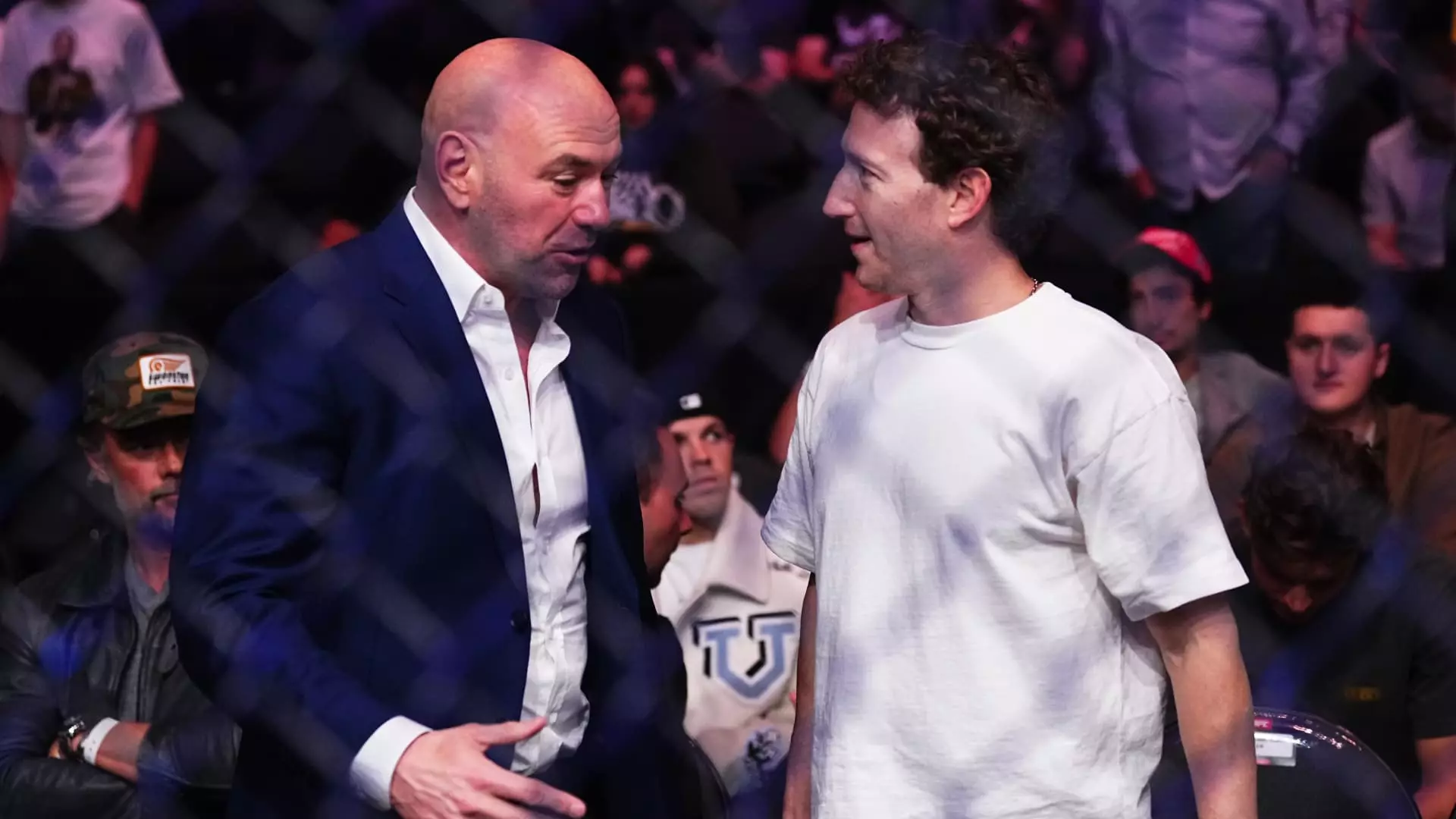The recent partnership between TKO Group’s UFC and Meta, valued in the multimillion-dollar range, stands as a testament to how technology is reshaping the sports landscape. As UFC integrates with Meta’s expansive portfolio—which includes AI systems, VR platforms, and social media channels—this collaboration is set to dramatically redefine how mixed martial arts fans engage with the sport. But while the potential benefits are enticing, one can’t help but approach this union with a critically evaluative lens.
UFC fans might find an evolving digital experience, but we must question the broader implications of such a partnership. Is Meta, under the leadership of Mark Zuckerberg, genuinely interested in enhancing the sports culture, or is this merely a strategy to diversify its faltering brand in the light of rising privacy concerns and public scrutiny? While UFC President Dana White promises that “exciting innovations” await, skepticism should reign supreme, especially when an entity with past controversies around data privacy and user satisfaction steps into the limelight.
A Glimpse into Future Innovation
Meta’s role as the “official fan technology partner” suggests a heavy investment into the UFC ecosystem, which encompasses various platforms such as Instagram, WhatsApp, and the Meta Quest. The planned integration—spanning AI-driven content and emerging technologies—promises to streamline fan engagement. UFC’s move to create a unique fighter rankings system using Meta’s technology could be a game changer, offering real-time updates and enhanced visibility of fighters.
However, we should interrogate whether the introduction of tech solutions truly caters to fan interests or if it prioritizes corporate gain. It poses an interesting dilemma: as the UFC ventures into uncharted waters with Meta, will fans embrace a digitized version of their passion, or will they resent the commercialization of their beloved sport? The authenticity of the fight experience could be at stake, overshadowed by a desire to monetize every interaction through algorithms that optimize user engagement over genuine fan connection.
The Specter of Over-commercialization
As UFC embarks on this partnership, concerns about over-commercialization loom large. With branding emblazoned across the Octagon at pivotal events, the line between sport and advertisement becomes increasingly blurred. This raises pertinent questions about the sport’s integrity. Will the UFC remain a competitive fighting league, or is it at risk of devolving into a corporate spectacle where branding supersedes athletic competence?
The mix of fan experience and marketing strategy could lead to a commodification of fighters and their talents. As Meta becomes deeply woven into the fabric of UFC’s promotional strategies, fighters may become more content creators and influencers rather than athletes. This evolving identity must be monitored closely, as it could transform the very essence of what it means to be a part of the UFC community.
The Potential Backlash
There is also the unavoidable prospect of backlash against Meta itself. With a slew of negative sentiment surrounding the company, UFC is stepping into a minefield by tying its brand to Meta’s controversial history. Consumer trust, once eroded through multiple public relations missteps, poses a challenge that UFC cannot afford to ignore. The association could alienate loyal fans who have previously enjoyed an authentic sports experience devoid of invasive marketing tactics.
Furthermore, the framing of UFC’s approach to male athleticism and aggression, as articulated by Zuckerberg during his podcast appearances, raises eyebrows. While the desire to foster a vigorous corporate culture can resonate with a segment of fans, it may inadvertently reinforce stereotypes or provoke criticism. The delicate balance of embracing the sport’s energetic spirit while avoiding toxic masculinity is a conversation that needs to be had within the broader discourse of sports culture.
The Road Ahead
As UFC and Meta prepare to lay the groundwork for their collaboration, their shared ambitions signal a transformative era that could reshape mixed martial arts. This partnership brings promise and potential pitfalls in equal measure. The singular focus on enhancing fan experiences must coexist with vigilance over maintaining the integrity of the sport. The next two to three years will unfold a fascinating chapter in the narrative of professional combat sports, and as fans, we must remain critically observant of how this new journey unfolds.

